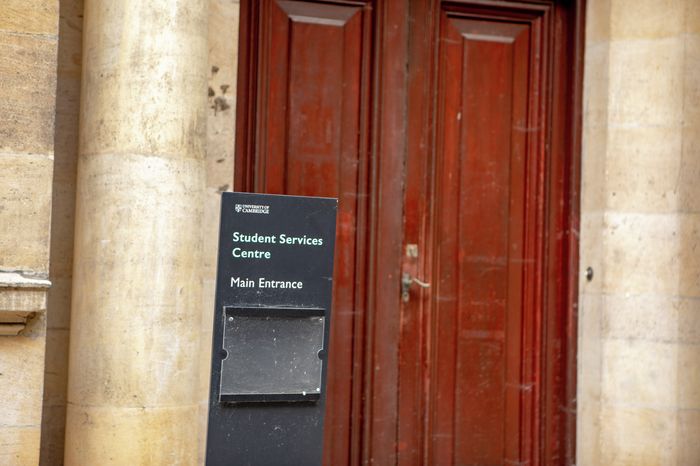What Cambridge gets right about mental health
Lauren Bird argues that Cambridge offers a blueprint for helping young people struggling with self-harm and suicidal ideation

I never used to associate the University of Cambridge with accessible mental health care. After arriving here, though, doors immediately opened to a level of treatment I spent years searching for within the NHS; the University, and the city of Cambridge, get many things right when it comes to mental health care. Revelations in BBC’s ‘The Nottingham Attacks: A Search for Answers’ on the Valdo Calocane case display the shocking maltreatment some experience, and the dire consequences this can have for unwell individuals and those around them. As someone who has spent time being treated for Borderline Personality Disorder (BPD), here’s where Cambridge, both within the city’s NHS and the University’s student services, gets it right – and where it can go wrong.
“The NHS weren’t interested in whether their suggestions would actually help ”
My experience with mental health services began aged thirteen, when I sought help from a GP after incidences of anxiety and suicidal ideation – feelings which would continue for much of my teenage life. The first time, I was sent home with advice to attend counselling provided by a charity. Six weeks of this was, unsurprisingly, not a cure, so after another two years of struggling with unstable mood, identity challenges, panic attacks and severe depressive episodes, I was referred to CAMHS. Despite being classed as a ‘danger to myself’ and put on the ‘high risk’ list, the wait for an initial assessment was nine weeks. I was sent a letter saying I had ‘low mood’, which didn’t come close to describing how I felt every day.
I received more cognitive behavioural counselling months afterwards, from a practitioner who quit the NHS due to burnout soon after our three appointments. There was a gap in my treatment after I asked for another counsellor, during which I landed in crisis services and A&E. I repeatedly asked to see a psychiatrist – I wanted someone who was medically qualified to treat me, as the counsellors tended to repeat advice I could have got out of one of the leaflets dotted around every waiting room. I was refused this, and instead was met with a series of clichés and cruel jargon by yet more counsellors: told that my self injury was “only superficial”, while my Borderline Personality Disorder symptoms were labelled as “low mood and anxiety” by patronising staff. I truly believed that I was not ‘ill enough’ to warrant effective treatment. To CAMHS staff, my BPD was a “phase” I would “grow out of” – one told me after coming out of hospital following a suicidal incident that “being a teenager is like being on a rollercoaster”. Didn’t I know it?
“I didn’t realise mental health treatment could be effective until I came to university”
I discovered the reason for this lack of personalised treatment later on, when a private therapist who also worked in the NHS let me know that in my area they have a step-by-step model which is adhered to in every under-18 patient: counselling, then CBT, then psychiatrist, then medication. But in my case, finally getting medicated aged 17 is what enabled me to live my life ‘normally’, apply to Cambridge, and do as well as I was able to. Cases involving complex mental health needs must be handled with delicacy and care; listening and giving reasonable choice to patients is key. That’s what was most effective when I got to uni, and finally understood what people meant when they said that things could get better.
I didn’t realise mental health treatment could be effective until I came to university. After one Zoom meeting with an advisor who listened, giving me several options so I had agency in my care, I saw a psychiatrist from the University within three months. I was finally given my diagnosis of Borderline Personality Disorder (BPD) and treated accordingly. The NHS had been focused on giving me my allocated hour per fortnight and getting me out the door as soon as possible – they weren’t interested in whether their suggestions would actually help, and seemed more focused on ticking the treatment option boxes in a standardised order than listening to what I needed.
NHS crisis services, too, are more fit-for-purpose in Cambridge. Rather than having a few overworked practitioners on 999 speed dial, Cambridge has a mental health ‘sanctuary’, a place for those in mental health crisis, staffed by volunteers who have been through it themselves, and a 111 mental health emergency line. Both enabled me to feel like a human, not just a patient, in my times of need. These are simple changes – yet ones which can prevent vulnerable users from a long night in A&E.
The University and NHS in Cambridge provide effective and useful mental health care, proving that much can be done within limited budgets. Students let down by their home NHS can receive tailored mental health treatment – and for me, this was life-changing.
 News / Cambridge academics stand out in King’s 2026 Honours List2 January 2026
News / Cambridge academics stand out in King’s 2026 Honours List2 January 2026 Interviews / You don’t need to peak at Cambridge, says Robin Harding31 December 2025
Interviews / You don’t need to peak at Cambridge, says Robin Harding31 December 2025 Comment / What happened to men at Cambridge?31 December 2025
Comment / What happened to men at Cambridge?31 December 2025 Features / “It’s a momentary expression of rage”: reforming democracy from Cambridge4 January 2026
Features / “It’s a momentary expression of rage”: reforming democracy from Cambridge4 January 2026 News / Varsity’s biggest stories of 202531 December 2025
News / Varsity’s biggest stories of 202531 December 2025










